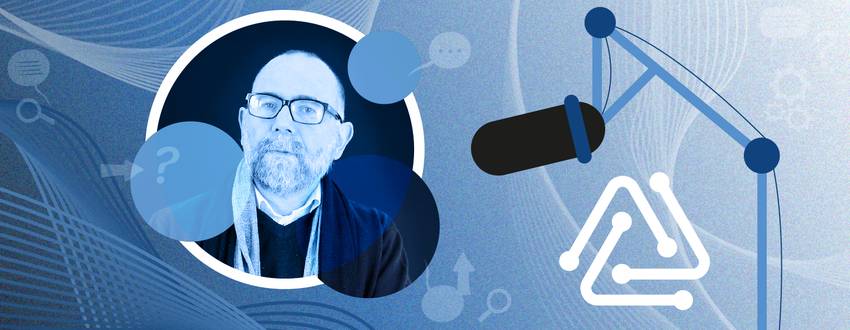News
LIRP: Interview with the Scientific Coordinator

17 march 2025
In response to the challenges facing online higher education, the Laboratory for Pedagogical Intelligence and Reflection(LIRP) at Domuni Universitas—officially inaugurated on 13 February 2025—aims to explore new pedagogical approaches that combine transdisciplinarity, creativity, and experimentation. We spoke with Dr Jean-Louis Meylan, Scientific Coordinator of the new laboratory.
What motivated you to launch the LIRP project within Domuni Universitas?
Dr Meylan:
LIRP was born from the desire to address the challenges of distance learning through an innovative, transdisciplinary approach. We are living in a time when pedagogical practices are being re-examined and evolving rapidly—driven largely by digital technologies and artificial intelligence. The purpose of this laboratory is to bring together teachers, researchers, and experts who are eager to explore these changes. Our aim is to question, evaluate, and reflect collectively on new methods of student support, particularly through cyber-mentoring.
Why did you choose the term “laboratory” to define this space of reflection?
Dr Meylan:
The word “laboratory” carries a particular resonance. It originates from the Latin laborare, meaning “to till the land”—a metaphor I find particularly appropriate. A laboratory is a place of experimentation, where ideas are tested—sometimes through trial and error—but always with a desire to break new ground. This metaphor of cultivation is deeply connected to our mission: to prepare and enrich the pedagogical landscape so that meaningful concepts may emerge in our digital and multicultural context.
Why are transdisciplinarity and creativity so central to the LIRP?
Dr Meylan:
Transdisciplinarity is essential because major innovations often emerge at the crossroads of disciplines. Education, as a field of study, cannot be limited to a single perspective. It requires the integration of diverse viewpoints: pedagogy, technology, psychology, sociology, philosophy, and even the natural sciences and theology. It is by taking the risk of stepping off the beaten path that true innovation becomes possible.
As Henry Bernstein put it, “Intuition is intelligence exceeding the speed limit.”
Creativity is therefore necessary to avoid recycling conventional pedagogical narratives. It takes courage to venture beyond the boundaries of academic norms. This exploratory mindset is at the heart of LIRP’s dynamic.
What working methods will the LIRP adopt?
Dr Meylan:
We will begin with what I call “clinical vignettes”—concrete case studies drawn from over twenty-five years of experience at Domuni Universitas. These cases will serve as starting points for our reflections. We will begin by analysing the concept of the mentor, their role and significance in distance learning support. This will open discussions on topics such as remote relationships, student autonomy, and the use of technological tools.
Our methods will be developed collaboratively, based on each participant’s level of involvement and availability. Exchange of perspectives, bibliographic research, and open discussions will be central to our approach.
How will the LIRP ensure the quality of its research and outputs?
Dr Meylan:
Quality is an absolute priority. The Quality Certification Framework will serve as a central point of reference. Our objective is to develop innovative solutions while maintaining the highest standards of educational quality. LIRP will go beyond theoretical reflection. We will produce concrete analyses of current practices and generate reports for Domuni Universitas leadership.
Additionally, we plan to publish scholarly articles in Télos and develop training modules aimed at higher education faculty, particularly early-career lecturers, to support their effective integration into distance learning.
Who can participate in the LIRP, and how?
Dr Meylan:
Anyone who is motivated and shares our vision is welcome. Teachers, researchers, and experts interested in joining can simply contact the laboratory. The LIRP is an open space for those who wish to reflect collectively, exchange experiences, and contribute to the improvement of online education. Participation terms are detailed in the Laboratory’s Charter.
Any final thoughts on your vision for the LIRP?
Dr Meylan:
The LIRP is not merely an academic initiative; it is a space for collective intelligence. I firmly believe that responses to the current challenges of digital pedagogy will not emerge from a single discipline, but from collaborative efforts among open and engaged minds. We hope that our work will have a lasting impact not only within Domuni Universitas, but also in the wider academic community—by offering thoughtful contributions to the advancement of high-quality digital pedagogy.

